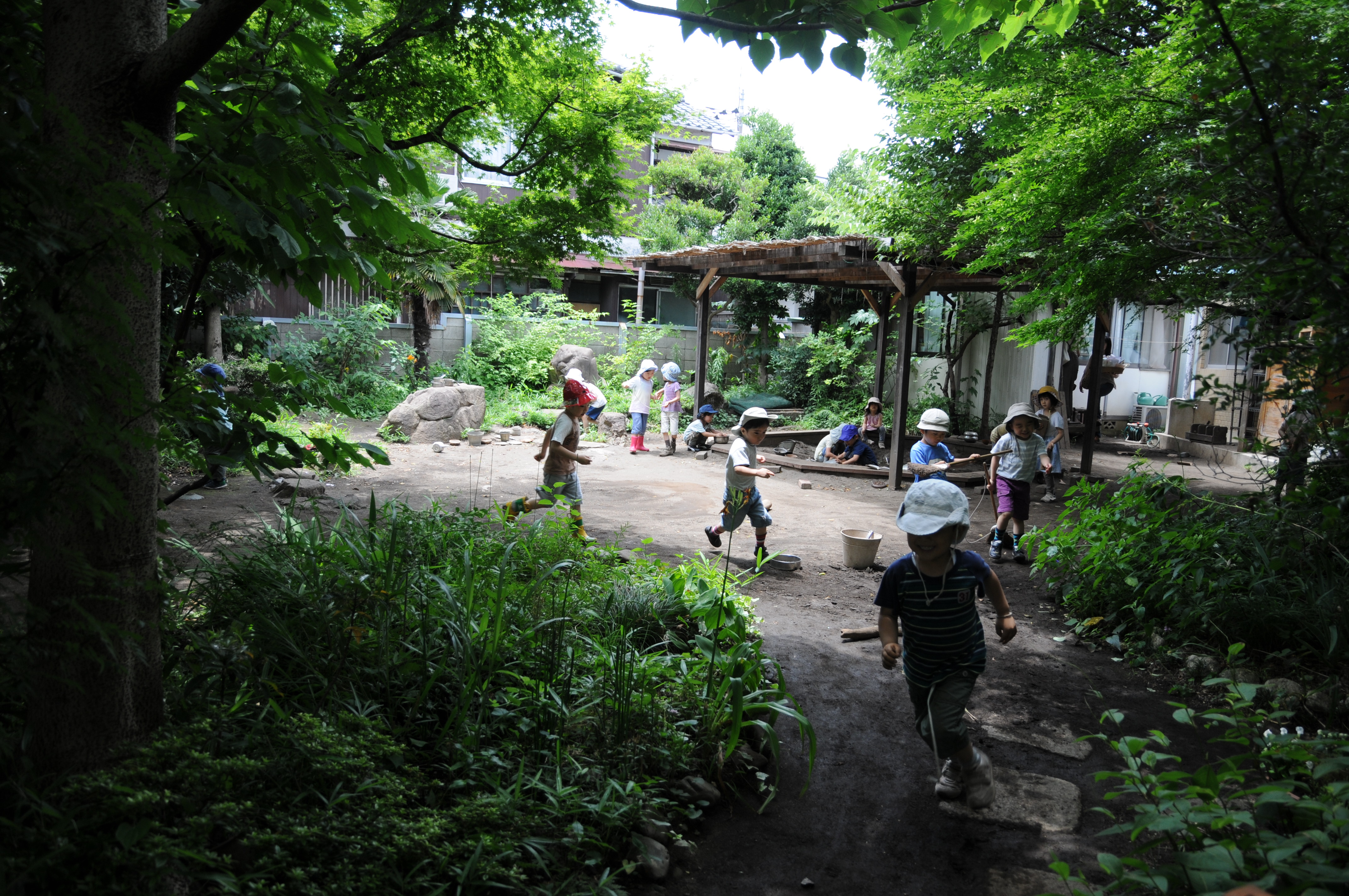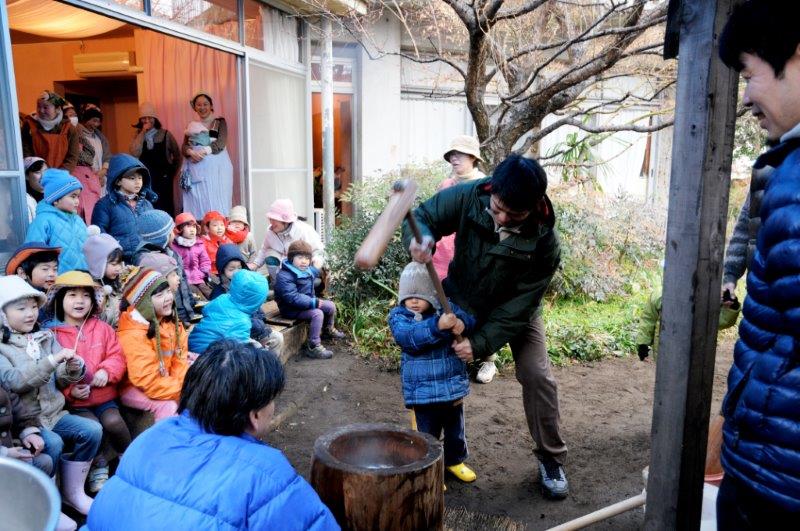Japan there are about 60 Waldorf kindergartens, including 50 member kindergartens registered in the Japanese Steiner-Waldorf Association, as well as some individual members who run early childhood programs and non-member kindergartens.
In Japan there are two types of institutional systems for children under 6 years old:
● Privately run kindergartens for 3 to 6-year-old children, recognized by the government and entitled to the state funding. The official school hours are from 10 AM to 2 PM.
● Nurseries and child care centers for birth – 3 year-olds and older kindergarten children. These child care centers have longer hours, from early morning to late in the evening for families who work full time and need child care throughout the day.
In the past, Steiner kindergartens only accepted children after age 3, but with the increasing number of working mothers in the recent years, more and more Steiner kindergartens are beginning to prolong their working hours and/or to accept children between birth and 3 years old.
Some kindergartens offer parent-child classes for children under 3 years of age and special classes for 2-year-olds.
Due to the enactment of a new law in April 2015, which encourages the integration of the above two types of early childhood education, many kindergartens are now undergoing a transformation into a new type.
Training. At the moment, the second 3-year training course organized by the Japanese Association in Tokyo will soon be completed. The courses were organized in collaboration and with the support of IASWECE and the Pedagogical Section at the Goethenaum. Additionally, there are two initiatives running in the Osaka and Yamaguchi Prefectures, and one is being planned in Nagano Prefecture.
Special concerns. Living and working in a non-Christian, Asian country, we have been trying to study our own culture and the anthroposophical point of view, asking ourselves how we could help Waldorf ideas and programs come to life in the social and cultural realities of Japan.
In an attempt to make Steiner early childhood education better known to public, we have organized “Steiner parenting festivals” every year as an outreach effort. How to best communicate the Waldorf ideas and programs to the public is one of our central tasks in our current situation.
Looking back
● 1975 – Steiner education came to be widely known through the book by Prof. Koyashu “Pupil at an Elementary School in Munich”.
● End of 1970s and 1980s – Waldorf Early Childhood Education was adopted in a number of private kindergartens through lectures, courses, and workshops by lecturers from Germany and through study tours in Europe.
● 1987 – First full time Steiner School opened in Tokyo, Japan.
● Since 1990, educators who studied in the West return to Japan and started, with parents, to organize Kindergarten programs.
● 2001 – “Tokyo Steiner School” was recognized by the government as “School Corporation Steiner Gakuen (School)” for the first time, followed by a second Steiner school in Hokkaido.
● 2015 – Within the framework of the new system, 3 child-care centers were founded.
Sono Matsuura is a kindergarten teacher in Tokyo who also teaches in the training courses, and is Japan’s representative on the IASWECE Council.
Webpage of the Japanese Steiner/Waldorf Early Childhood Association



